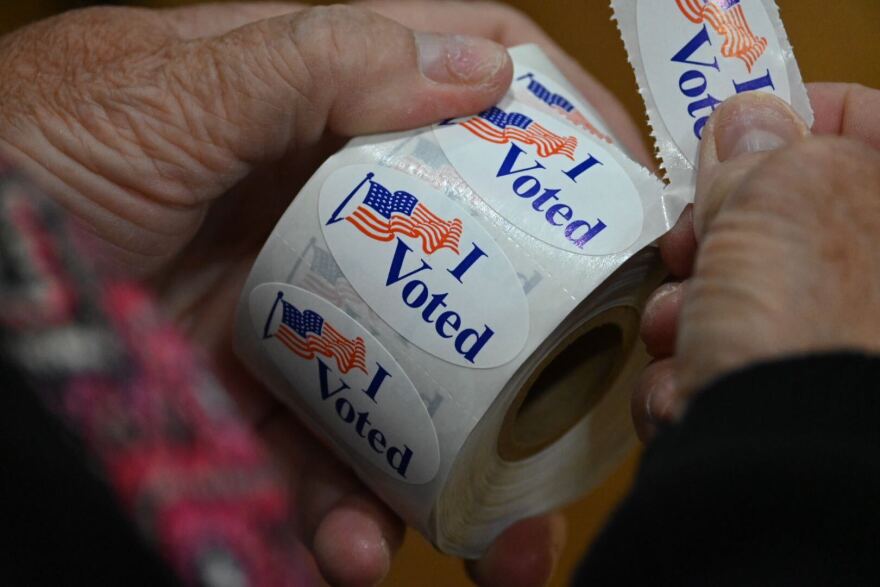Under a new law set to go into effect at the end of this month, Missourians will need to present a government-issued photo ID when casting their ballots in November and in future elections.
Republicans in the state legislature have attempted to pass a photo ID law a number of times, but their efforts have never withstood legal challenges. This year, lawmakers included a photo ID provision in a wide-ranging law that will make many changes to the way elections are conducted in Missouri.
Parts of the new law already face legal scrutiny. On Monday, the Missouri Chapter of the NAACP and League of Women Voters filed a lawsuit challenging some new voter engagement provisions. The NAACP, along with the American Civil Liberties Union, successfully challenged a Missouri photo ID law in 2017, and vowed in June to take the current provision to the courts.
Along with the photo ID requirement, the law increases oversight from the secretary of state’s office by allowing the agency to audit voter rolls or conduct cybersecurity audits. It also limits the number of people someone can help register to vote to 10 unless that person signs up as a voter registration solicitor with the state.
Two weeks of in-person, no-excuse absentee voting are also part of the new law, but that provision is tied to the photo ID requirement as part of a compromise among lawmakers.
If the ID requirement is struck down in courts, the two-week voting period would go with it.
While 32 other states, including Kansas, have some form of photo ID requirements, critics say they are burdensome for low-income people and senior citizens.
“The state’s own data shows that the photo ID provision stands to burden more than 200,000 Missouri voters, disproportionately voters of color, seniors, voters with disabilities, young voters and low-wage workers. The bill’s other provisions hit these communities hardest as well. Our democracy only functions when all have a seat at the table,” said Denise Lieberman, the director and general counsel for the Missouri Voter Protection Coalition.

Secretary of State Jay Ashcroft’s office told The Beacon it did not have an updated estimate on how many Missouri adults may be without a form of state-issued photo ID.
A 2017 report from the secretary of state’s office found that 137,000 registered voters in Missouri did not have a form of state-issued ID and an additional 140,000 voters had expired IDs.
Forms of acceptable ID for voting include a driver’s license, state ID, passport or military ID.
Voters who don’t have an approved photo ID can cast a provisional ballot at their polling place. Forms of identification must include an expiration date andcannot have expired before the date of the most recent general election.
Various departments, including the Secretary of State’s office and the Department of Revenue, can help someone obtain a nondriver’s license for voting purposes for free. The Kansas City Beacon compiled a quick guide for what you need to know to get one.
What documents do I need to get a non-driver’s license photo ID to vote?
All applicants should have a document that contains their name and Social Security number. They also need to show residency with something that includes their name and address.
Applicants who want a Real ID — which will also pass as a federally accepted form of identification — will need to bring two documents from different sources to verify residency. One example would be a utility bill.
Applicants who have changed their name or gender are required to bring applicable documentation, like a marriage license, court order or amended birth certificate.
What if I don’t have my documents or if they are in another state?
Certified copies of birth certificates can be obtained from theMissouri Department of Health and Senior Services.
The secretary of state’s office will provide any records needed to get a nondriver license, including a birth certificate, marriage license, adoption papers, naturalization papers or court orders.
The office will also attempt to retrieve any necessary documents that may be held in other states.
To request help, fill out the state’sonline form or call (866) 868-3245.
What do I do once I have the documents I need?
Bring the documents to the local license office and say you need to get a nondriver license in order to vote. You’ll need to sign a statement affirming that you don’t already have another form of state-issued photo ID.
What if I still can’t get a photo ID in time for the election?
Voters can still cast provisional ballots at the polls, as long as they are registered to vote.
At the polling place a voter would sign an affidavit verifying that they don’t have a photo ID or other forms of identification needed to vote. They would then cast a provisional ballot, which would be sealed in an envelope with the voter’s signature on the outside.
A voter can either return to their polling place before the end of the day with an acceptable form of photo ID or the election worker can verify their identity by checking the signature on the outside of the envelope against voter records.
A 2014 report from the secretary of state’s office found that fewer than three in 10 provisional ballots were counted in the 2012 presidential election. According to the report: “There were only five counties that counted more than half of their provisional ballots, and each of those counties counted just one ballot. On the other hand, there were 45 counties that counted 20 percent of their provisional ballots or fewer.”
When casting a provisional ballot, election workers provide voters with a stub after they vote which has information on how to see whether your ballot was counted.
This story was originally published on the Kansas City Beacon, a fellow member of the KC Media Collective.




